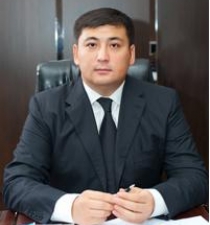Rompetrol GM: Petromidia refinery upgrade brings USD 80 mln annual gains in Romania, refining still under pressure in Europe

 The recent investments in modernizing the Petromidia refinery in Romania helped its owner, oil and gas company Rompetrol, reduce costs and increase refining margins, bringing a gain of USD 80 million a year, said Zhanat Tussupbekov, general manager of the Rompetrol Group (in picture), in an interview for Agerpres. Rompetrol, owned by KazMunayGas from Kazakhstan, finalized modernization of the refinery this year, but expects results to be seen in time, due to additional pressure on the refining market and the excess of refining capacities in Europe. Total investments in the refinery were expected to reach some USD 377 million, while its refining capacity has increased to 5 tonnes a year, from 3.8 tonnes a year previously.
The recent investments in modernizing the Petromidia refinery in Romania helped its owner, oil and gas company Rompetrol, reduce costs and increase refining margins, bringing a gain of USD 80 million a year, said Zhanat Tussupbekov, general manager of the Rompetrol Group (in picture), in an interview for Agerpres. Rompetrol, owned by KazMunayGas from Kazakhstan, finalized modernization of the refinery this year, but expects results to be seen in time, due to additional pressure on the refining market and the excess of refining capacities in Europe. Total investments in the refinery were expected to reach some USD 377 million, while its refining capacity has increased to 5 tonnes a year, from 3.8 tonnes a year previously.
“The European refining market is subject to huge pressure because of the large, modern refineries in the US, Middle East and India, which substantially increased exports in Europe,” said Tussupbekov in response to inquiries about Petromidia's losses. “Let's not forget that since the beginning of the crisis in 2008, 10 refineries, or 8 percent of the total refining capacity in Europe, were closed,” he added. Moreover, the net refining margins – the different in price between oil products and gas, taking into account refining costs – were down from an average of USD 6.6 per barrel in 2007, to USD 0.6 per barrel at end 2011, the Rompetrol GM explained.
Most refineries in Europe can process small volumes, under 10 tonnes of petrol a year, which have an adverse effect on production costs, given the high value of fixed costs in the total costs structure, the GM explained. “The situation became worse after the global financial crisis, which led to a low demand for refining products and low refining margins. Less complex Refineries, which did not have exploration and production components, were basically eliminated from the market,” he went on.
For KazMunayGas, Romania is a hub in Europe, where it plans to create an international division for refining and distribution. The Petromida refinery is also a platform for training the company's specialists from Kazakhstan, according to Tussupbekov, quoted by Agerpres.
The recent investments in the refinery are a step ahead towards further expanding Rompetrol in the Black Sea and Mediterranean Sea basins, to countries such as Ukraine, Turkey and in the Balkans. “We plan to focus our investments between 2013-2017 on retail and trading, […] and Romania will be the main market where we want to expand the gas station network by building new ones and taking over existing stations. We also want to increase out network via franchise,” said Zhanat Tussupbekov.
The company will also invest in exploration and prospecting in the five perimeters controlled in Romania, where it already invested USD 9.4 million between 2005 and 2011.
Rompetrol Rafinare, part of the Rompetrol group, reported a turnover of USD 1.1 billion in the first quarter of this year, a 2 percent increase compared to the first quarter of 2011. The company ended the first quarter on a loss, with a net loss of USD 62.7 million, 5.5 times higher than in the first quarter of 2011. In the first three months of 2011, Rompetrol Rafinare posted a loss of USD 11.3 million.
Rompetrol is currently negotiating with the Romanian Government over the convertible bonds issue. In October 2010, the Romanian state returned as a shareholder in Rompetrol, after the majority shareholder failed to redeem in cash a EUR 540 million convertible hybrid held by the government on account of historic debt. Rompetrol Rafinare decided to convert most of the hybrid into shares instead, the oil company said in a statement. “Our company remains open to continuing the constructive dialogue in order to find a solution that is beneficial to both parties. [...] We are prepared to cooperate with the Romanian Government, as shareholder in the company. However, should the Government not want to be a shareholder anymore, Rompetrol is willing to discuss this too,” said Zhanat Tussupbekov.
The Romanian Government owns a 44.69 percent stake in Rompetrol Rafinare. The 35-year old Zhanat Tussupbekov became Rompetrol's GM in may this year, replacing Saduokhas Meraliyev.
Corina Chirileasa, corina@romania-insider.com
(photo source: Rompetrol)












